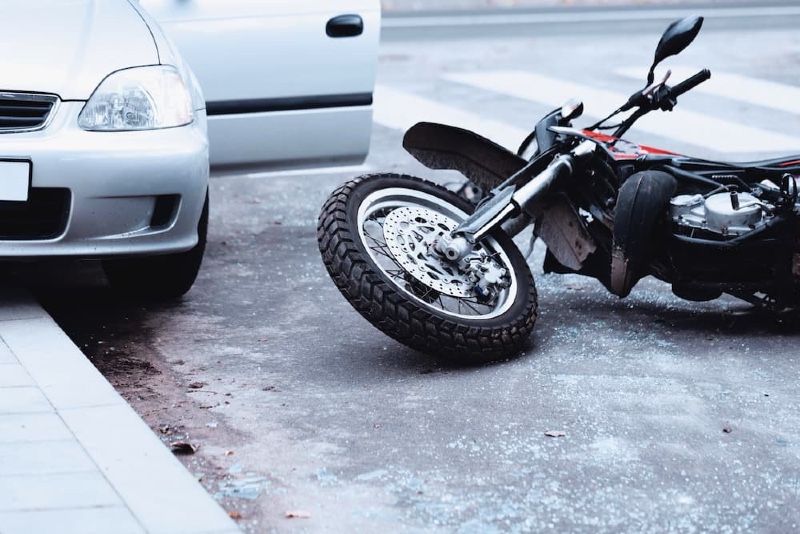
In 2021, Virginia motorcycle collisions were at an all-time high, with 102 motorcycle fatalities, representing a 17.2% increase from 2020.
Due to the disadvantage motorcyclists have when colliding with a larger and heavier vehicle, most accidents result in severe rider injuries or death.
But what happens when a driver hits a motorcyclist and leaves the accident scene?
If you were involved in a Virginia hit-and-run motorcycle accident, you might suffer from severe injuries and an inability to work.
You might feel helpless, but it’s important to remember that options are available. Speak with a personal injury attorney as soon as possible.
Read on to learn more about motorcycle hit-and-run accidents and what you may recover.
If you have any questions, please contact the injury lawyers at River Run Law today.
What Is a Hit-and-Run Motorcycle Accident?
A hit-and-run accident occurs when a person involved in a collision leaves the scene without providing their contact information or insurance details to the other driver.
In other words, the driver flees the scene before sharing information or contacting the police. Under Virginia law, leaving the scene of an accident is a criminal offense.
There are many reasons a person might flee the scene of an accident.
The driver might be driving on a suspended license or without the required insurance and be afraid of getting into trouble or being arrested.
Also, if they think they might have hurt or killed someone, the driver might panic and flee before really thinking about the implications of their behavior.
Fleeing the scene is an especially egregious act when you consider that it could delay medical treatment for any injured victims.
This delay could significantly exacerbate injuries and even result in death. And it puts an additional burden on law enforcement, as they must now try to hunt down the driver who fled.
What Do I Do After a Hit-and-Run Motorcycle Accident in Virginia
Law enforcement may respond quickly to a collision once it is reported. Despite their quick response time, there could still be difficulty tracking down a hit-and-run driver after a crash.
If you were involved in a hit-and-run motorcycle accident in Virginia, there are several things you can do to protect your rights and assist law enforcement in tracking down the other driver.
Seek Medical Attention
After a motorcycle accident, go directly to a hospital and obtain a complete medical evaluation. Many injuries take hours or days for symptoms to appear.
Prompt evaluation by a doctor is vital to connect any damages to the accident.
Gather Evidence
If you are physically able, document every detail about your accident and the hit-and-run driver.
Information on the car, including color, make, model, and other distinguishing features, could help law enforcement track down the driver.
Some injured victims might even remember a full or partial license plate number. Write or type this information in a safe place and relay it to law enforcement officers at the scene.
Additionally, speak to any witnesses that saw the accident to request their names and contact information.
Provide this information to your attorney so they can prepare your case as you recover from your injuries.
Insurance
Notify your insurance company as soon as possible. You could be eligible for benefits from your insurance company, even if you believe the hit-and-run driver is at fault for your accident.
However, your insurance company may need more time to pay. Speak to an attorney before speaking to any insurance adjusters regarding your accident.
Contact an Attorney
Contact a qualified personal injury attorney immediately following your accident.
Even if the police haven’t located the hit-and-run driver, your attorney will work with you to explore your options for financial recovery.
What Can I Recover?
Virginia law permits injured victims to obtain compensatory damages in the form of economic and non-economic damages.
The purpose of compensatory damages is to replace what an injured victim lost due to their accident.
Economic damages represent financial losses directly related to your accident. These damages include the following:
- Medical expenses,
- Lost wages,
- Loss of future earnings, and
- Property damage.
Copies of receipts, invoices, pay stubs, and other documentation assists your attorney in supporting your claim for economic losses.
Non-economic damages include subjective losses resulting from the psychological and emotional effects of your injuries. They can include the following:
- Emotional distress,
- Pain and suffering,
- Loss of enjoyment of life, and
- Disfigurement and permanent disability.
Due to their subjective nature, proving non-economic damages usually requires the assistance of a qualified personal injury attorney.
Contact a Richmond, Virginia Personal Injury Lawyer Today
A serious injury can devastate your life. You might be overwhelmed, angry, and confused after suffering injuries in a hit-and-run motorcycle accident.
You need comprehensive medical care to get back on your feet. At River Run Law, we aggressively pursue justice and fair compensation on your behalf.
You deserve a compassionate advocate to protect your rights and fight for your best interests.
When you don’t know where to turn for help, the legal team at River Run Law can get the job done for you.
Contact us today to get started.

